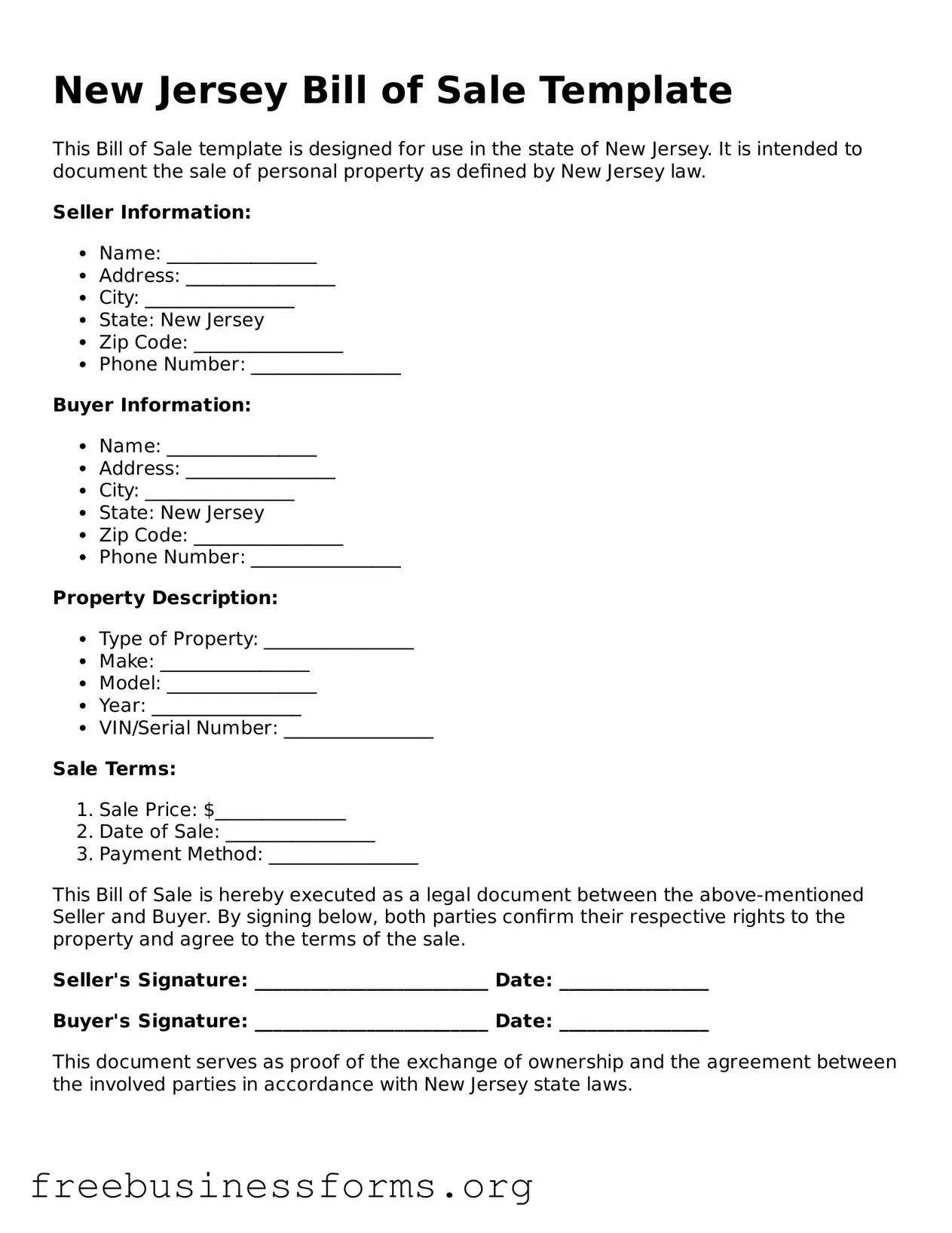Blank Bill of Sale Template for New Jersey
The New Jersey Bill of Sale form is a legal document that serves as a receipt for the transfer of ownership of personal property from one party to another. This form provides essential details about the transaction, including the description of the item sold, the purchase price, and the signatures of both the buyer and seller. Utilizing this form can help protect both parties by documenting the sale and ensuring clarity in the exchange of goods.
Open Form Here

Blank Bill of Sale Template for New Jersey
Open Form Here

Open Form Here
or
↓ PDF File
Quickly complete this form online
Complete your Bill of Sale online quickly — edit, save, download.